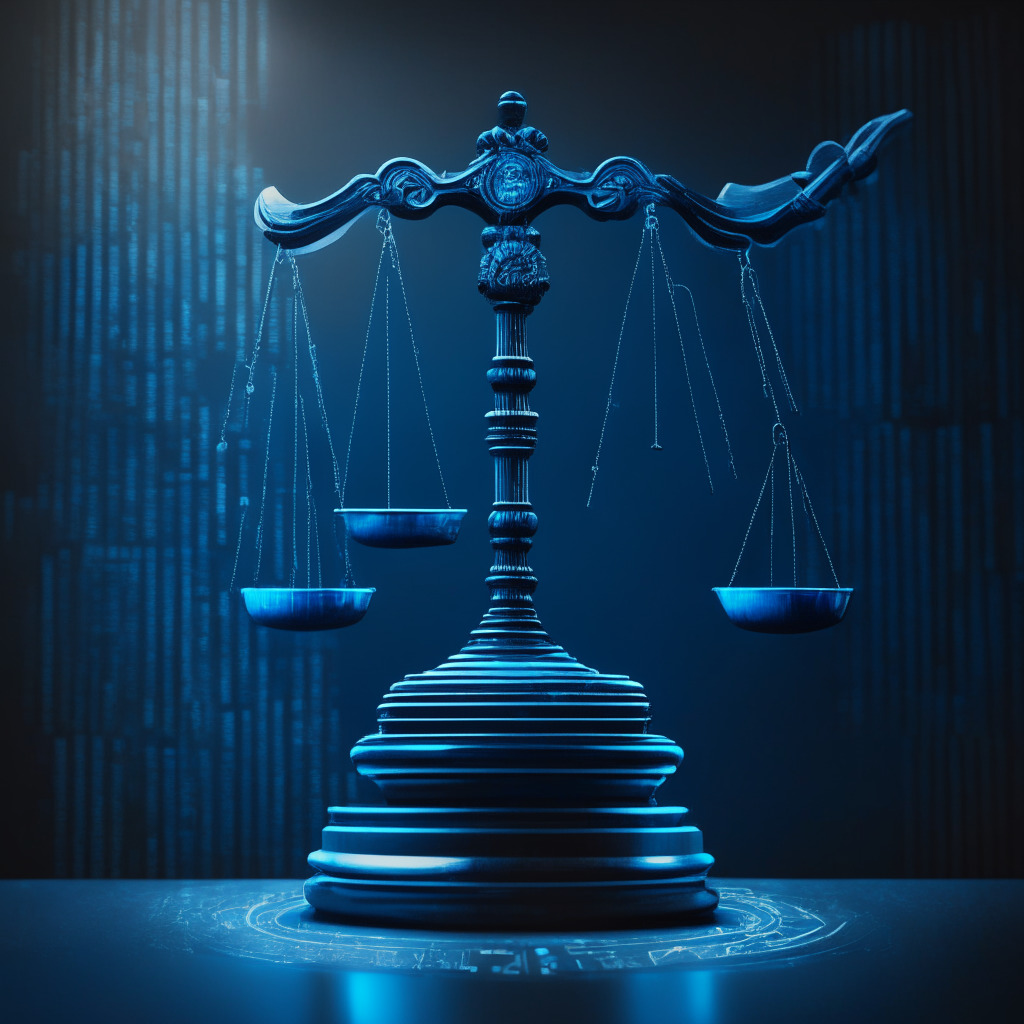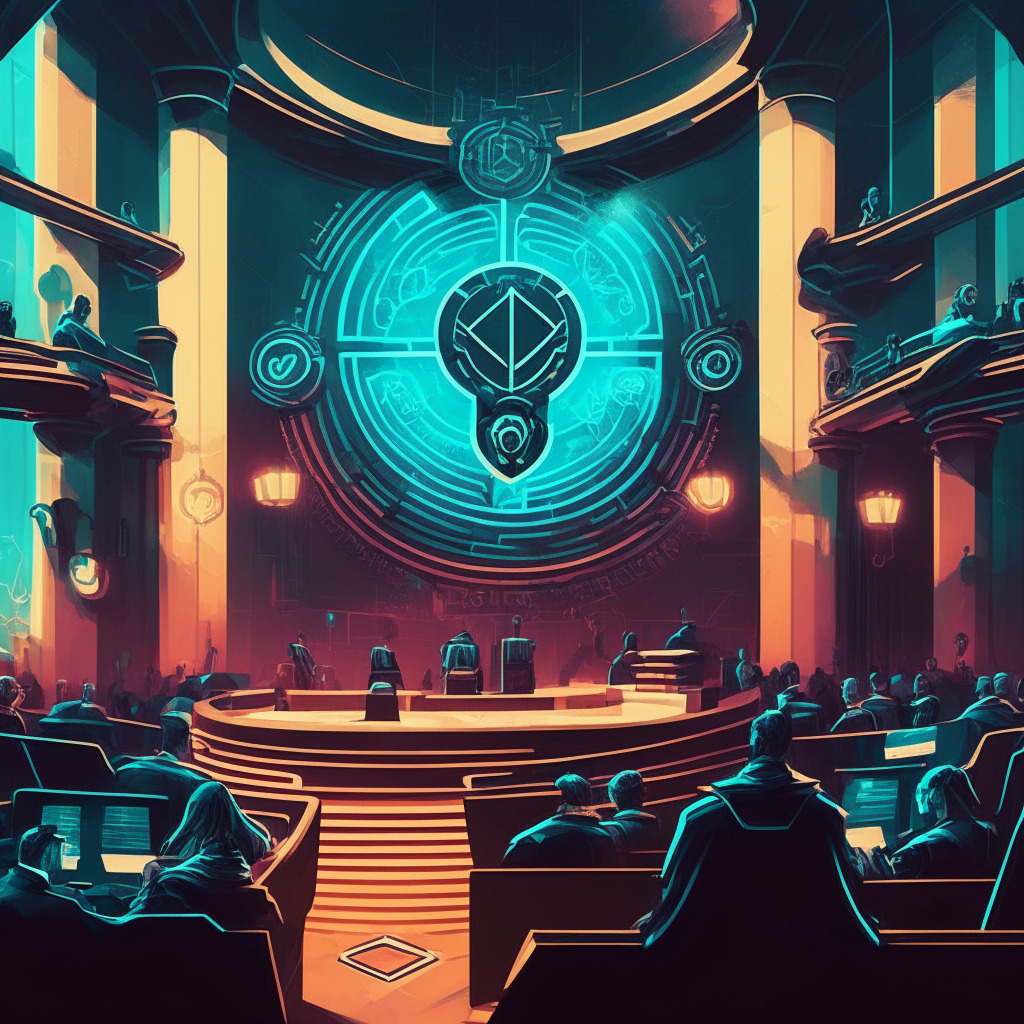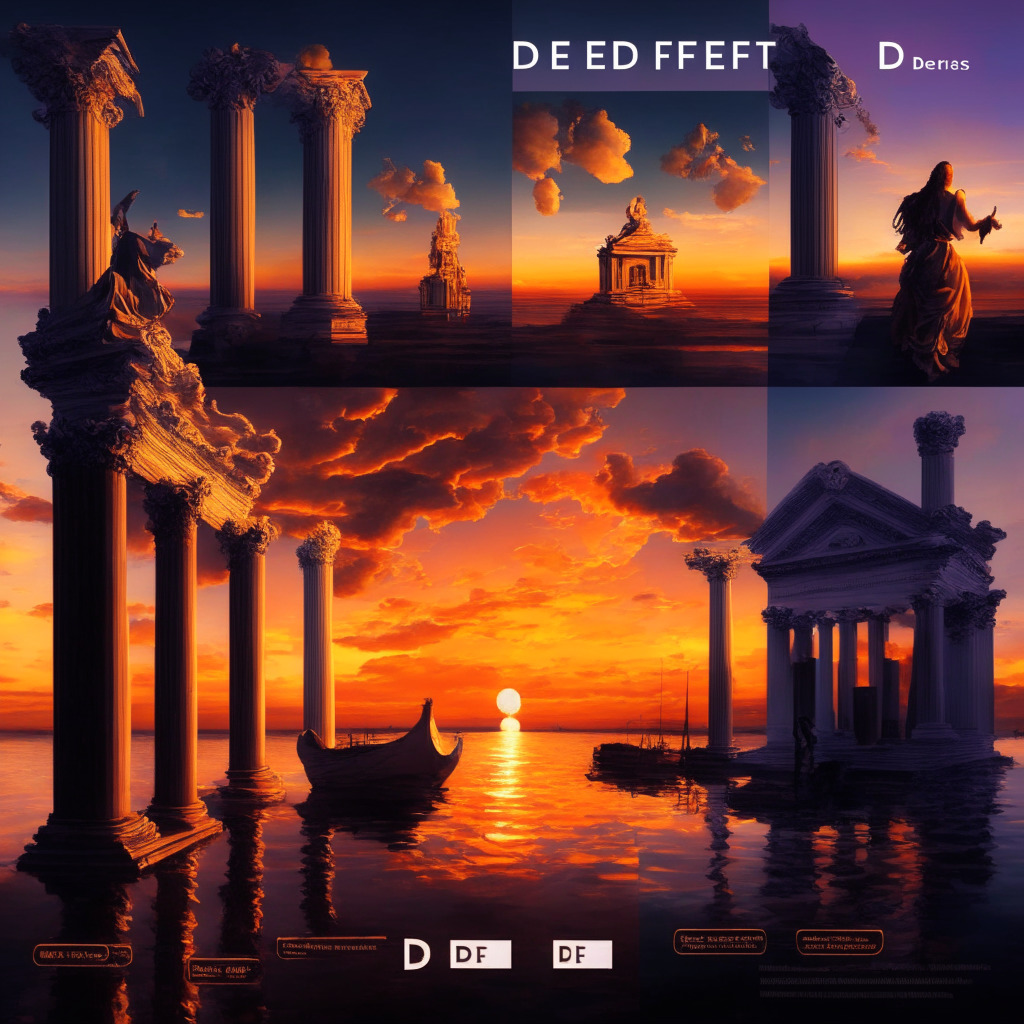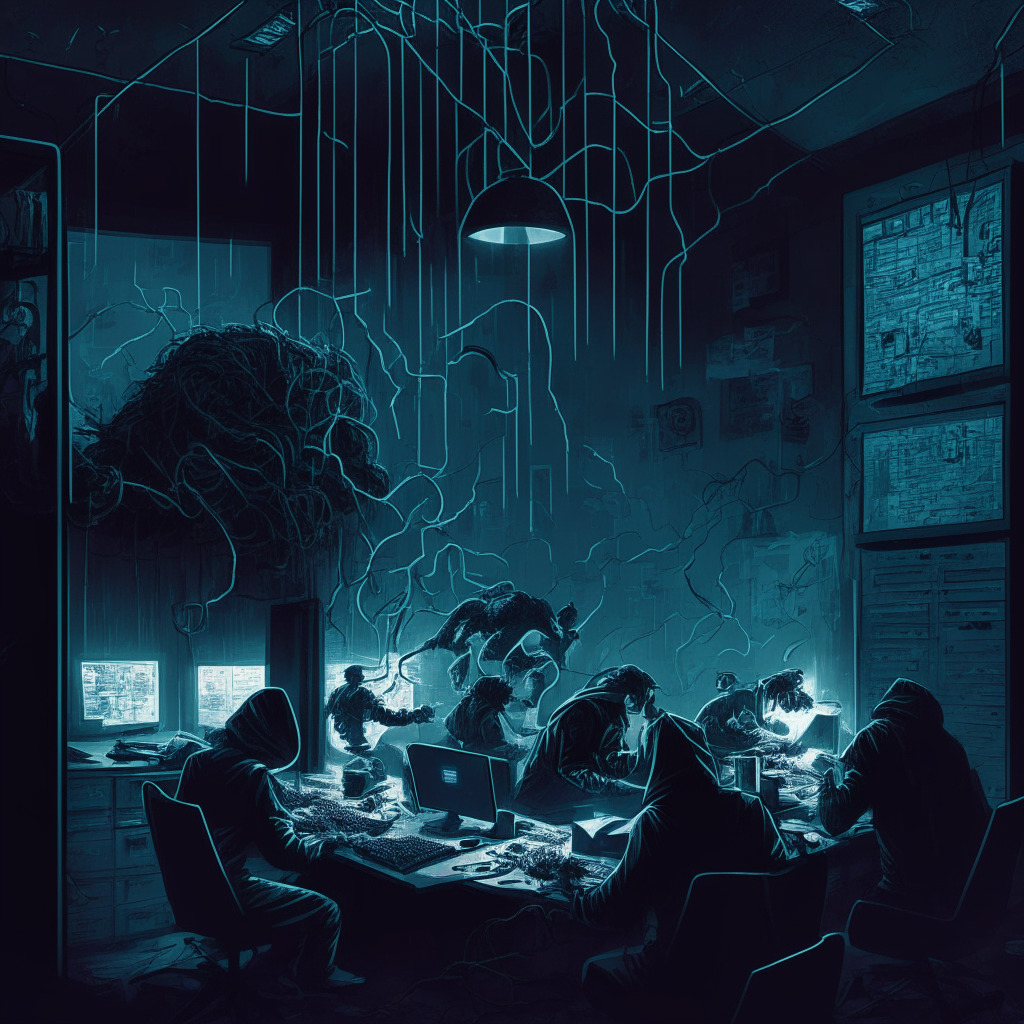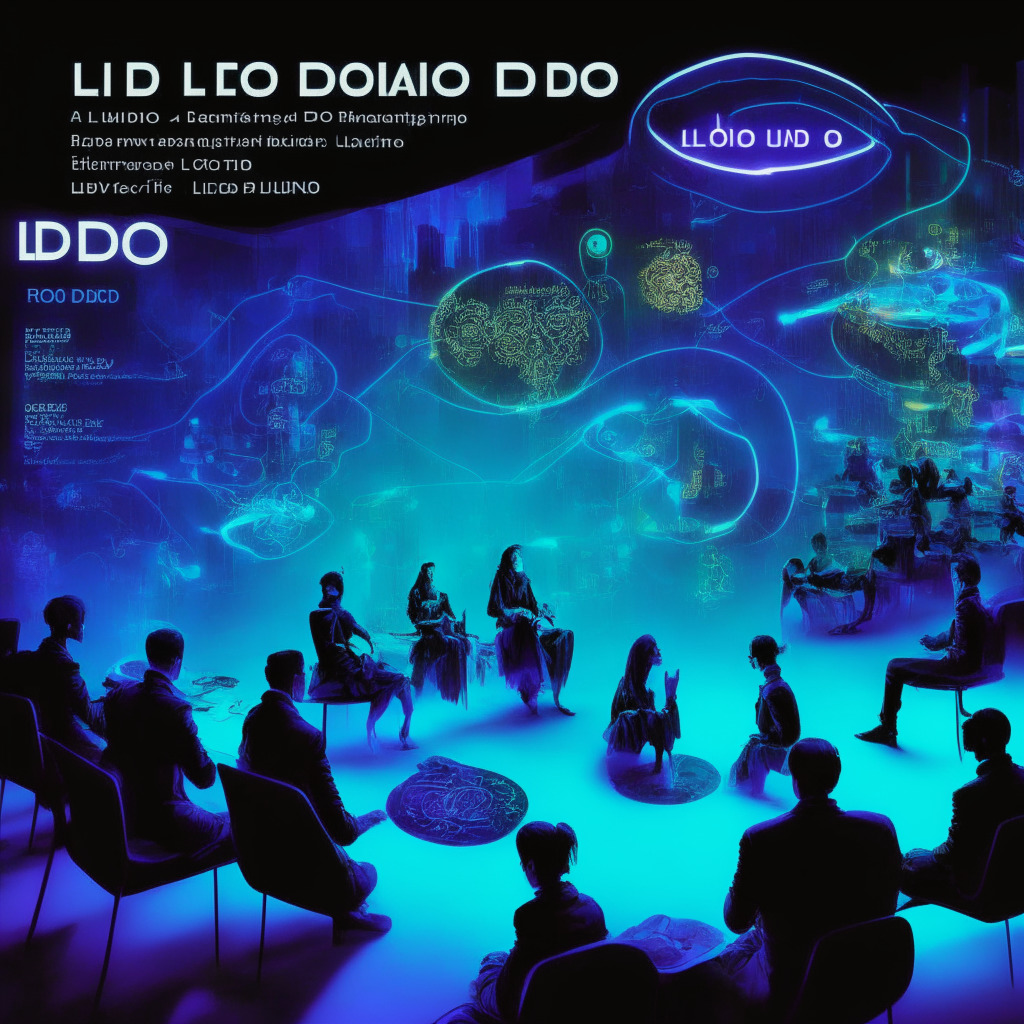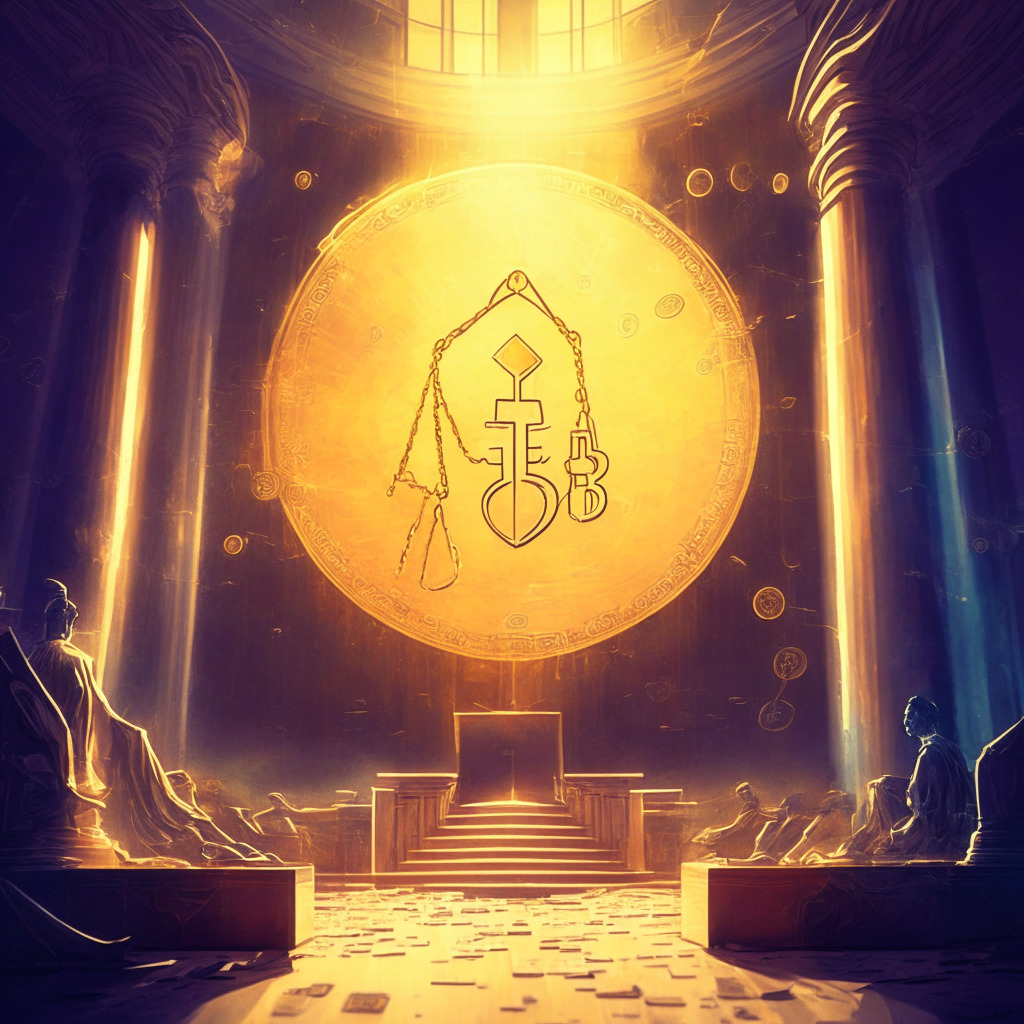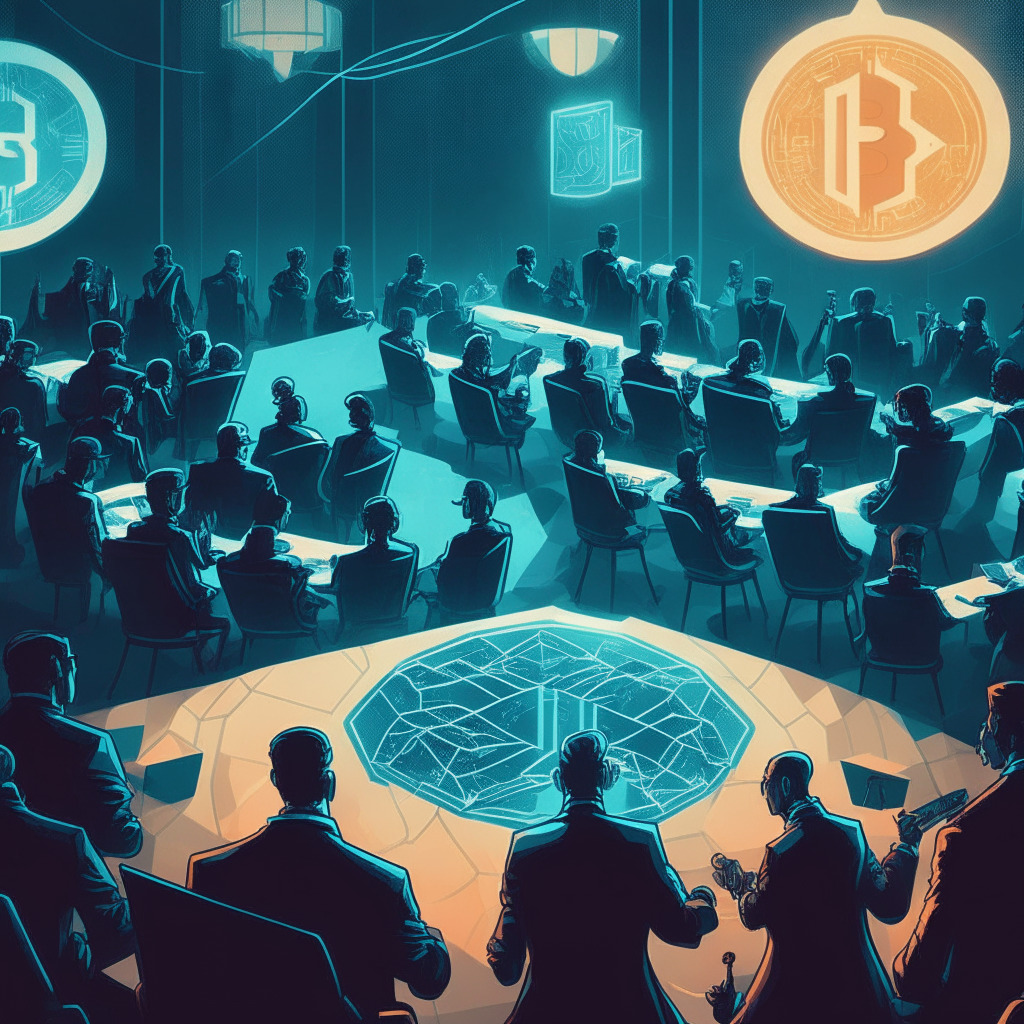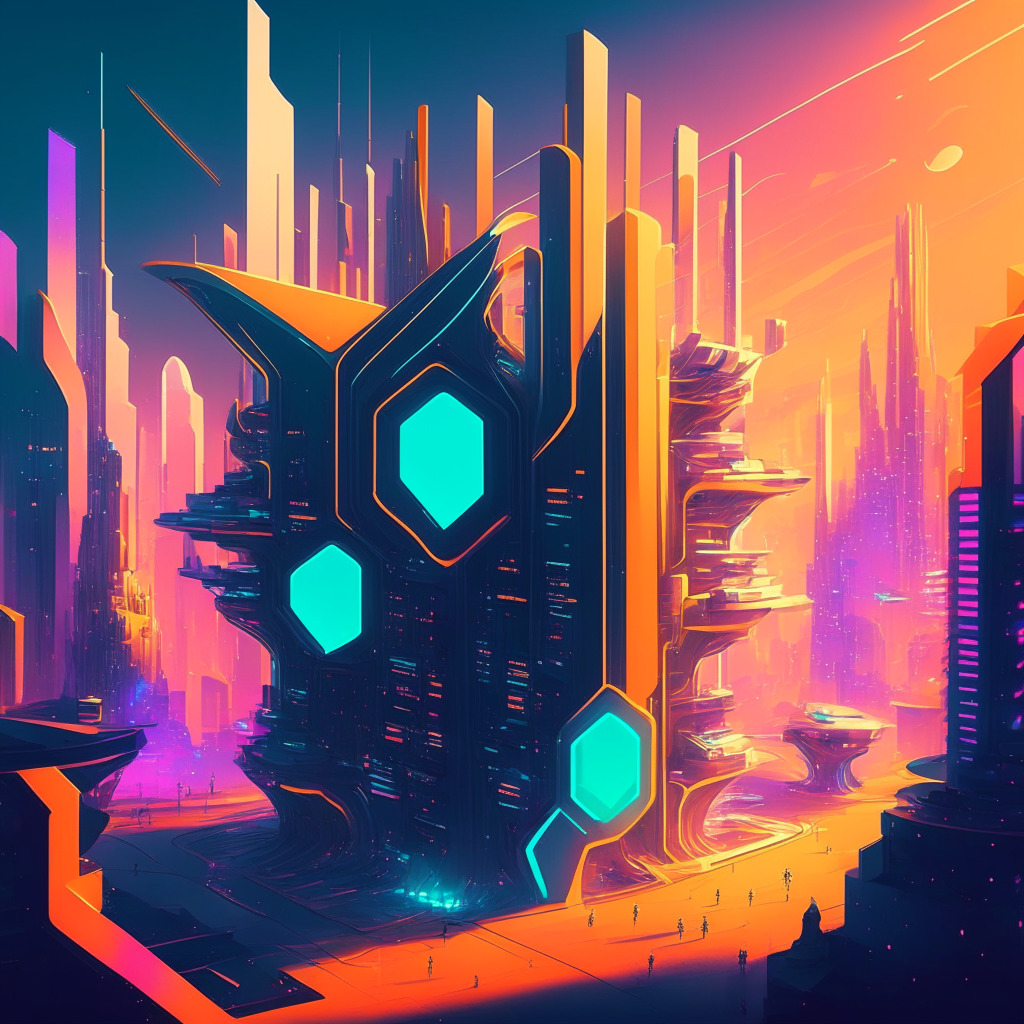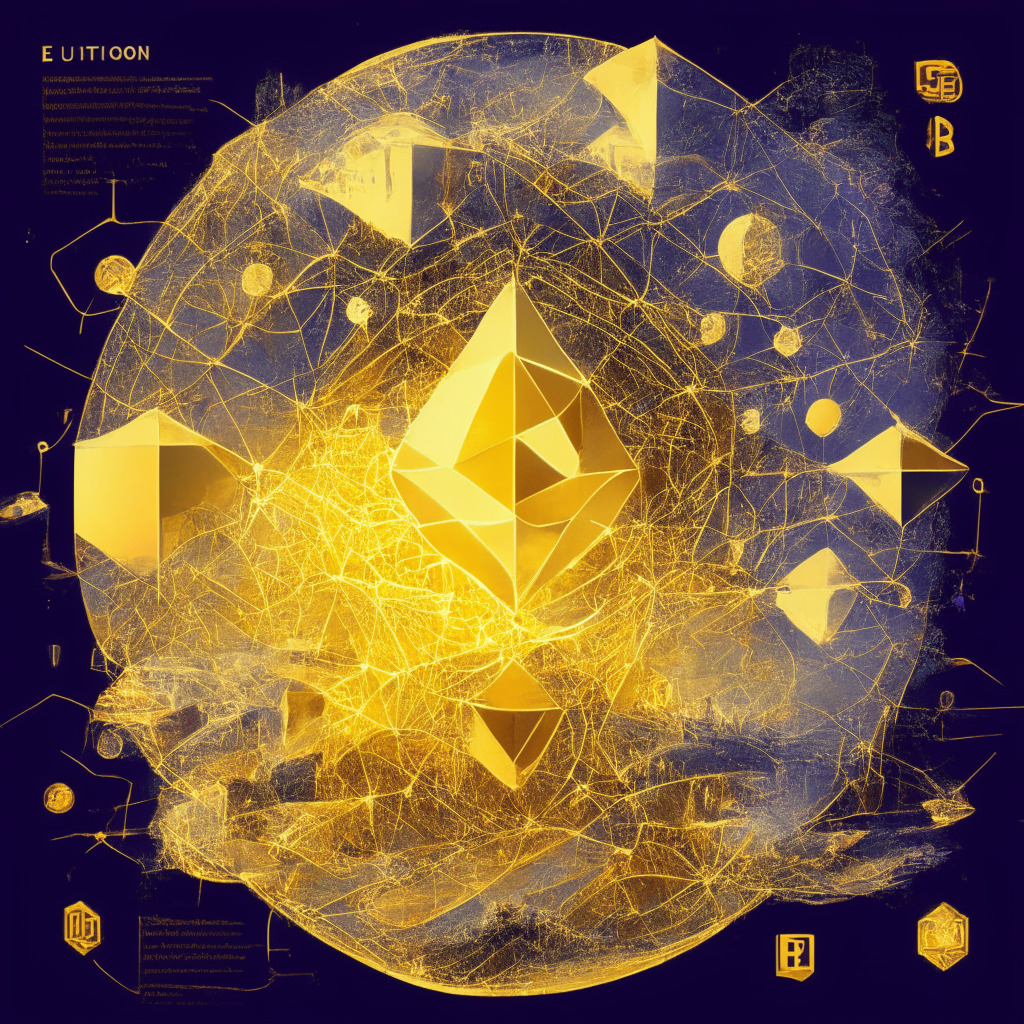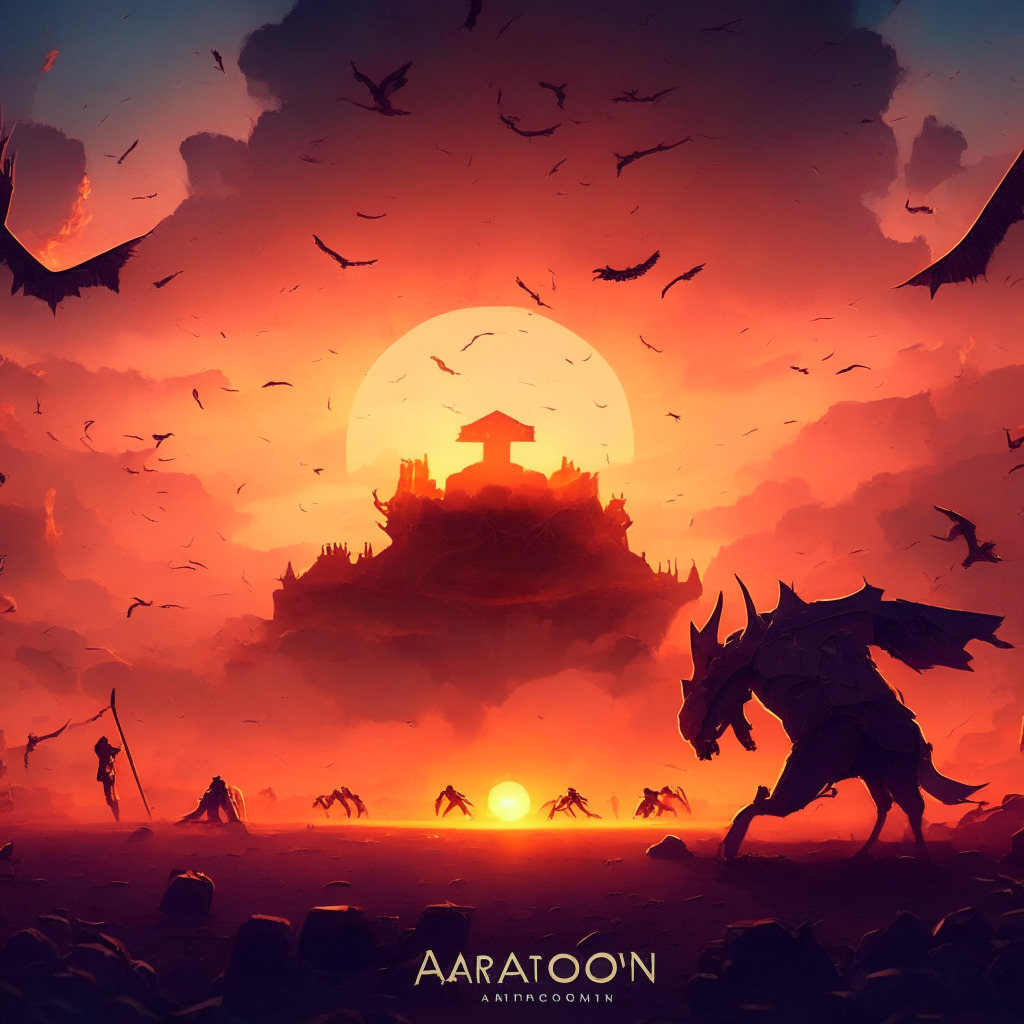A recent court ruling sided with the CFTC against Ooki DAO, finding that DAOs constitute a “person” under the Commodity Exchange Act. This implies that US financial regulations apply to both traditional businesses and DAOs, raising concerns about the legal implications and viability of DAO structures moving forward.
Search Results for: DAOs
Ooki DAO’s Landmark Court Battle: Consequences for Blockchain and DeFi Regulations
The recent precedent-setting case between Ooki DAO and the CFTC forced the DAO to shut down and pay a hefty penalty. The outcome warns that adopting a DAO structure doesn’t exempt projects from regulatory scrutiny and highlights the need for a proper regulatory framework in the DeFi and blockchain space.
Ooki DAO Ruling: Balancing Innovation and Regulation in Decentralized Systems
A US district judge ordered Ooki DAO to pay a civil penalty and cease operations, setting a precedent as the court considered the DAO a “person” liable for legal violations. The case raises essential questions about balancing regulation and innovation in the blockchain world, while other DAOs face increased scrutiny from regulatory bodies.
Groundbreaking Ruling on DeFi Regulation: A New Era of Compliance or Stifled Innovation?
A federal judge ruled in favor of the U.S. Commodity Futures Trading Commission against Ooki DAO for offering unregistered commodities, breaking the notion that DeFi entities are beyond regulatory scope. This highlights growing regulatory encroachment and questions how future regulations will adapt to decentralized platforms.
Aave Secures $15M for NFT-Powered Decentralized Social Media: Lens vs. Traditional Platforms
Aave secures $15 million to develop Lens, an NFT-powered protocol for decentralized social media platforms, enabling users to tokenize social data and transfer it between platforms. Built on Ethereum scaling solution Polygon, Lens aims to consolidate users’ online presence and promote growth across networks.
Decentralization Theater: Unmasking the Truth Behind Fake DeFi Projects and Ensuring a Genuine Future
In the world of DeFi, “decentralization theater” refers to projects appearing decentralized but retaining central control, confusing users and regulators. Genuine decentralization is vital for the development of Web3 ecosystems, disrupting the centralized Web2 architecture, and maintaining user trust.
Uniswap’s V3 Fee Switch Debated: Failed Proposal, Legal Concerns, and Timing Issues
A recent DAO community poll on a proposed Uniswap V3 fee switch by GFX Labs ended in a split vote, delaying the initiative despite majority support. The proposal sought to charge liquidity providers a fraction of fees across Uniswap V3 pools and redistribute earnings to the UNI community. The failed vote was attributed to incorrect structuring, but consensus for future fee switches appears to be growing.
Ethereum Improvement Proposal: NFTs with Wallets, Impacts and Potential Use Cases
Developers introduced an Ethereum Improvement Proposal (EIP-6551) that allows smart contract accounts to be part of every nonfungible token (NFT). This gives NFTs their own crypto wallets and expands use cases like blockchain gaming, inventory systems, and decentralized autonomous organizations, with potential for unique and innovative experiences.
Exploring MakerDAO’s $1.28B Bet on Real-World Assets: Boosting Yield or Risky Undertaking?
MakerDAO’s community voted to open the BlockTower Andromeda vault, aiming to invest up to $1.28 billion in short-dated U.S. Treasury bonds using overcollateralized DAI stablecoin. This reflects efforts to diversify reserve assets, generate higher yields, and integrate crypto with traditional financial markets.
The Great Debate: Treating Crypto Assets as Securities by Default in the EU
A study commissioned by the European Parliament suggests treating crypto assets as securities by default, applying stringent EU governance and authorization rules. The report highlights regulatory challenges in the complex, cross-border crypto industry and raises questions about addressing decentralized finance, staking, and non-fungible tokens within the upcoming Markets in Crypto Assets (MiCA) regulation.
Self-Executing DAO Proposals: Striking the Balance Between Autonomy and Security Risks
DAOs faced major mishaps last week, raising concerns about self-executing proposals and potential drawbacks. Striking the right balance and mitigating risks through security audits, timelocks, and appointing DAO delegates can ensure the safety and success of decentralized governance models.
Ethereum Anonymity Boost: Andreessen Horowitz’s Cicada Library Unlocks Anonymous Voting Pros and Cons
Andreessen Horowitz’s venture capital fund has released Cicada, a Solidity library that significantly advances anonymous voting on the Ethereum platform by preventing individual voter choices from being disclosed before polling ends. Combining Cicada with zero-knowledge group membership systems enhances voter anonymity, while addressing challenges in encoding blockchain votes, paving the way for more democratic voting systems within decentralized autonomous organizations (DAOs).
Web3 and Financial Services: Balancing Innovation, Regulation, and Market Stability
The Federal Reserve Bank of Atlanta’s Policy Hub report discusses Web3’s implications for financial services, touching upon blockchains, DeFi, financial infrastructure, regulatory challenges of DAOs, and central bank digital currencies (CBDCs), highlighting the importance of balancing innovation and regulation.
Tornado Cash DAO Takeover: Analyzing Risks, Governance, and Resilience in Decentralized Systems
The recent Tornado Cash DAO takeover brings attention to the vulnerability of decentralized autonomous organizations (DAOs) and the importance of proper governance to prevent malicious attacks. The privacy-focused Tornado Cash’s protocol remains intact, highlighting the need for an improved and secure DAO system to ensure protocol security and trust in blockchain technologies.
Cabin Network City: Blockchain-Powered Coliving for Digital Nomads and Creators
Cabin, a digital-native coliving city project, introduces a global alliance of self-governing neighborhoods for remote workers and creators through blockchain-powered membership. These affordable, accessible neighborhoods aim to foster human creativity by integrating cabins in close-knit communities, with citizenship access granted via NFTs and governed by the Cabin token.
Bridging the DAO Education Gap: New Course by Upstream Launches with NFT Rewards
Upstream’s My First DAO is a 24-week course aimed at equipping crypto enthusiasts with tools to build successful decentralized autonomous organizations (DAOs), focusing on tokenomics, governance structures, and compliance. Through innovative “learn and earn” methods, students are rewarded with NFTs for participating in the program.
Tornado Cash Attacker’s Surprising Move: Blockchain Security in Decentralized Systems Debated
The attacker of decentralized autonomous organization, Tornado Cash, submits a proposal to return control, sparking skepticism and optimism among crypto enthusiasts. The incident highlights the vulnerabilities and potential resilience of decentralized systems while emphasizing the importance of community-based approaches to mitigate risks and maintain trustless relationships in blockchain technology.
Unexpected TORN Token Surge: Reversing Attack or Gigatroll Strategy?
Tornado Cash token (TORN) experienced a 10% increase after a proposal aiming to reverse malicious changes implemented by an attacker. The attacker’s proposal plans to restore governance state, with a good chance of execution. This incident emphasizes the importance of security and vigilance in the blockchain and cryptocurrency industry.
Tornado Cash DAO Breach: Analyzing Decentralized Governance and Security Challenges
A security breach at the decentralized autonomous organization (DAO) of Tornado Cash raised concerns as an attacker initiated a malicious proposal, gaining control over certain project aspects. This highlights the potential risks of decentralized management and emphasizes the importance of increased vigilance and robust security measures in ensuring a secure future for digital assets.
Undervalued Litecoin and Stablecoin Stalemate: The Future of Crypto in a Dynamic Landscape
This article highlights Litecoin’s market value to realized value (MVRV) Z-score as undervalued, JPMorgan’s report on stablecoin market recovery, and Hong Kong’s pursuit of a transparent regulatory framework for digital assets amid evolving crypto landscape filled with opportunities and challenges.
Optimism in Asia Crypto Markets Amid Clearer Regulations and Emerging Meme Coin Legal Battles
Despite market uncertainties affecting bitcoin and ether prices, Asian traders remain optimistic due to clearer regional cryptocurrency regulations. As cryptocurrency becomes more widely adopted, adherence to intellectual property and trademark laws becomes crucial for the ecosystem, fostering long-term stability and growth within the industry.
Lido DAO Proposal: Boost LDO Value with Staking, Buybacks & Revenue Sharing – A Balanced Analysis
A proposal submitted by lidomaxi aims to increase Lido’s native governance token, LDO’s utility by introducing staking, buyback programs, an insurance fund for Lido DAO, and a revenue-sharing parameter. This development could potentially revamp LDO, but concerns regarding complexity and impact on other token holders remain.
Bancor Lawsuit Raises Questions on DeFi Trust and Impermanent Loss Protection
A recent class action suit against Bancor’s decentralized autonomous organization (DAO) alleges misleading investors about its impermanent loss protection mechanism and operating as an unregistered securities. This case triggers concerns about transparency, integrity in DeFi space, and highlights the importance of regulation, security, and investor trust in the rapidly evolving blockchain ecosystem.
Hector Network HIP 40: Balancing Legal Protection and Token Holder Rights – A Complex Conflict
Hector Network’s future is uncertain as it hosts a vote on Hector Improvement Proposal 40 (HIP 40), which could dilute token holders’ rights. The proposal aims to clear legal uncertainties for the decentralized autonomous organization (DAO) but grants significant governance power to Hector Network employees, receiving backlash for potentially undermining its community-run status.
MakerDAO’s Endgame Plan: Roadmap to Improved Governance and DAI’s Dominance in Stablecoin Market
MakerDAO’s Endgame plan, devised by founder Rune Christensen, aims to improve governance, secure DAI’s status as a popular stablecoin, and maintain decentralization. The five-phase roadmap includes a Beta launch, creation of SubDAOs, development of governance AI tools, Sagittarius Lockstake Engine launch, and a rebranded new chain, fostering a sustainable, balanced, and decentralized platform.
MakerDAO’s Endgame: AI Integration, New Blockchain, and the Centralization Debate
MakerDAO’s future involves artificial intelligence (AI) and a new blockchain, according to its recently announced roadmap, “Endgame.” The five-phase project aims to enhance efficiency, resilience, and participation by adopting AI and open processes while maintaining the organization’s decentralized principles.
Web3
Web3 and NFTs are revolutionizing the music industry, with the inaugural Wavelengths Summit discussing blockchain-based communities, AI, and future artist revenue streams. The event emphasized community building through blockchain and decentralization while exploring the potential of decentralized autonomous organizations (DAOs) in the industry.
Exploring Efficient DAO Voting Mechanisms: Weighing Strengths, Weaknesses, and Innovation
A recent study by Singapore University of Social Sciences researchers analyzed decentralized autonomous organization (DAO) voting mechanisms, evaluating eight popular techniques. The holographic consensus received the highest ratings, and the team designed a hypothetical voting mechanism combining conviction voting and holographic mechanism for improved efficiency and robustness.
Exploring Blockchain’s Future: Balancing Innovation, Security, and Market Stability
Blockchain technology offers increased security, transparency, and potential applications beyond finance, including IoT and DAOs. However, concerns over scalability, energy-efficiency, and regulation remain. Cryptocurrency exchanges play a crucial role in ensuring market safety and attracting mainstream interest, while media outlets like Cointelegraph educate and inform the public, fostering a more robust industry.
Ethereum’s Arbitrum to Distribute $6.2M ETH to DAO: Pros, Cons, and Main Conflict
Arbitrum plans to distribute nearly $6.2 million worth of ETH to its decentralized autonomous organization (DAO) from network transaction fees, totaling 3,352 ETH. This follows a disagreement between Arbitrum’s team and community members over an unapproved fund transfer. The distribution aims to align community incentives and give ARB tokens purpose beyond governance.
Aragon vs. Token Holders: Buyback Debate & its Impact on DAO’s Future
Tensions rise between Aragon, a DAO developer, and its token holders as crypto hedge fund Arca issues an open letter suggesting Aragon buy back its ANT token. The ongoing conflict has caused significant volatility in the ANT token price, and Arca’s proposal may serve to restore credibility and trust in the Aragon community.
Aragon Retools DAO After 51% Attack: Debating Treasury Security Vs. Decentralized Governance
Switzerland-based Aragon Association recently pulled plans for voting rights over its future direction due to a 51% attack on its Aragon DAO. The attackers, called “Risk Free Value (RFV) Raiders,” aimed to manipulate the use of Aragon’s ANT token for financial gain. In response, Aragon repurposed its DAO as a new grants program to secure its treasury and mission.
